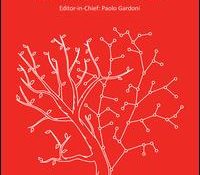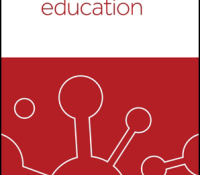tandfonline.com har udgivet en rapport under søgningen „Teacher Education Mathematics‟: Toward an information theoretic ontology of risk, resilience and sustainability and a blueprint for education– Part I Link til kilde
Like this:
Like Loading...

tandfonline.com har udgivet en rapport under søgningen „Teacher Education Mathematics‟: Abstract Abstract Fractal metaphor could be introduced to organization studies to elaborate on those organizational concepts that call for self-organization, self-similarity, similarity persistence in different organizational levels, symmetrical expansion, homogeneous discipline and quality, omnipresent controlling measures, and growth, as well as the organizational processes and procedures that require recursion. Organizational power is an abstract entity which could precisely be explained via a metaphorical fractal. Thus, Sierpinski Triangle, a familiar geometrical fractal has been applied in the paper with the purpose to unfold the fractal characteristics of the power within organizations. Such an approach presumes power characteristics as hierarchical, pyramidal, distributive, recursive, accumulative, dependent, comparative, and unequal. The discussions through the paper could contribute to future organization theorists to form an… Continue Reading →
Like this:
Like Loading...
tandfonline.com har udgivet en rapport under søgningen „Teacher Education Mathematics‟: Link til kilde
Like this:
Like Loading...
tandfonline.com har udgivet en rapport under søgningen „Teacher Education Mathematics‟: Abstract Formulae display:?Mathematical formulae have been encoded as MathML and are displayed in this HTML version using MathJax in order to improve their display. Uncheck the box to turn MathJax off. This feature requires Javascript. Click on a formula to zoom. Abstract Ontologies play an important role as knowledge domain representations in technology-enhanced learning and instruction. Represented in form of concept maps they are commonly used as teaching and learning material and have the potential to enhance positive educational outcomes. To ensure the effective use of an ontology representing a knowledge domain it needs to be validated. In this paper a previously presented validation methodology for concept maps is exemplified. Two different types of concept map validity are distinguished, referring… Continue Reading →
Like this:
Like Loading...



